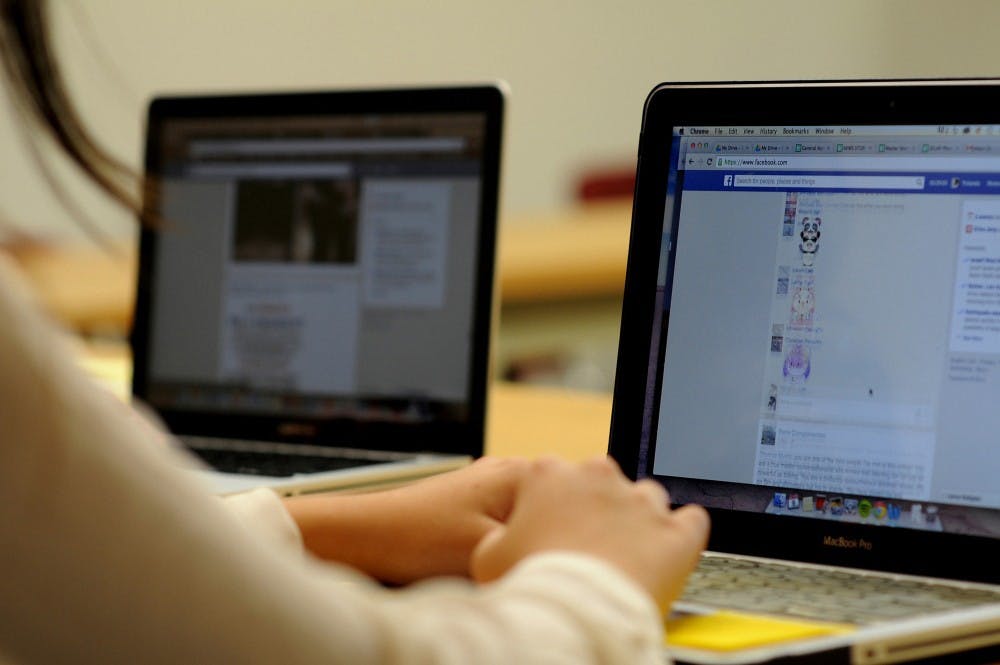A new study by Penn psychologist and Associate Director of Clinical Training Melissa G. Hunt established a causal relationship that Facebook, Snapchat, and Instagram usage increases feelings of depression and loneliness.
The study, co-authored by 2018 College graduates Rachel Marx and Courtney Lipson, as well as College senior Jordyn Young, monitored the social media usage of 143 undergraduate Penn students over a four-week span.
No previous studies had gone beyond establishing an association or correlation between social media usage and well-being.
Additionally, many previous studies relied on self-reported measures concerning the amount of time participants used social media, while Hunt's study had students submit iPhone battery screenshots which measured time spent on each active app.
In the study, one control group was allowed to continue with regular Facebook, Instagram, and Snapchat usage while another intervention group was instructed to limit their usage to 10 minutes per app per day.
To measure well-being, Hunt’s team then had participants complete a subjective weekly survey that used seven scales including loneliness, depression, anxiety, fear of missing out, social support, self-esteem, and autonomy and self-acceptance.
Out of these categories, the study’s results showed both a clinically and statistically significant decrease in loneliness and depression for the group that limited their social media time to ten minutes per app daily. Slight decreases in anxiety and fear of missing out were also observed.
Young said the Penn study was unique due to its more conclusive relationship between social media and negative effects.
“We were actually able to prove a causal link between the two, meaning that if you use less social media, it will make you less depressed and less lonely,” Young said. "As opposed to just saying 'if you use less [social media], you are more likely to be less depressed and less lonely.'”
Hunt and Young emphasized that the study did not intend to eliminate social media usage entirely among the intervention group.
“We recognize that social media is an integral part of our daily lives, and it’s unreasonable to have them stop using it completely,” Young said.
The study acknowledged it was limited in its ability to monitor students’ social media usage beyond their iPhones. It also only focused on Facebook, Instagram, and Snapchat, whereas social media entails a number of other platforms.
Despite these limitations, Hunt said the study offers important insights regarding the impact of these apps.
“Some of the existing literature on social media suggests there's an enormous amount of social comparison that happens,” Hunt told Penn Today. “When you look at other people's lives, particularly on Instagram, it's easy to conclude that everyone else's life is cooler or better than yours."
Young shared Hunt's sentiments.
“Using social media less can’t hurt,” Young said. “It goes with the idea all things in moderation."









